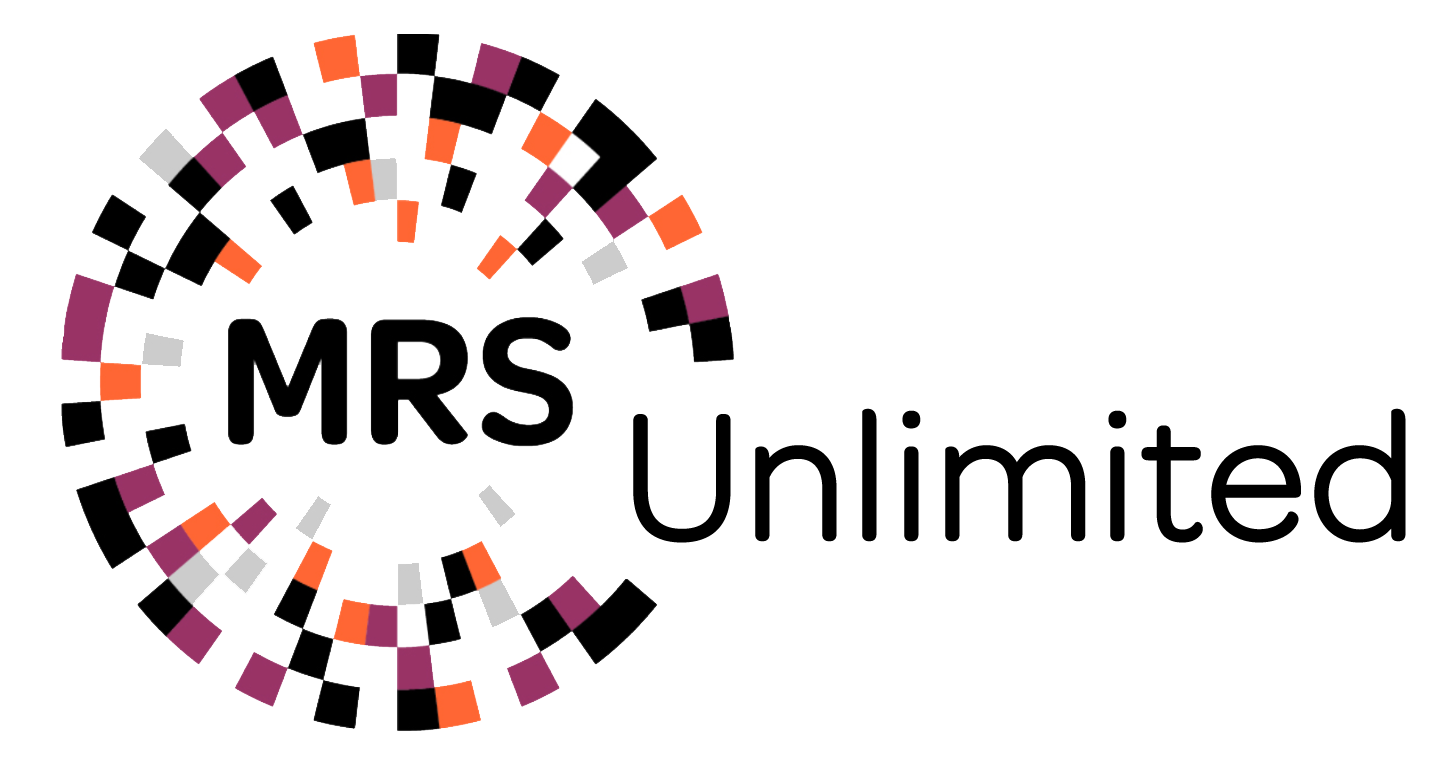MRS Unlimited: striving for barrier-free inclusivity
29 June 2021
This article was written by Judith Staig, founder of ContentWrite. It is sponsored by: 
One of the most shocking statistics in the recent MRS Diversity, Inclusion and Equality (DI&E) survey was that only 9% of people from a minority ethnic background believed that they have the same opportunities as everybody else in the market industry, and that they are rewarded fairly. Things are better for people with a disability[i] – but not much. Only 23% of disabled people, and 21% with any form of physical or mental health condition or neurodiversity hold this belief. This means that around four out of every five people in this category feel they – and other market researchers with disabilities - are discriminated against. As well as this, 42% of people said that their condition has put them at a disadvantage in their career.
This is a serious problem. When you look at the wider UK market, 19% of adults of working age have a disability and around 14% of people have some form of neurodiversity; if our industry isn’t a good place for them to work, not only are we impairing our colleagues and friends working lives, but we are losing out on talented people who won’t consider market research as a career, or who are forced out due to untenable working conditions. It’s hard enough already: in the UK, disabled people are over a third less likely to be employed than those without a disability.
And in case you were thinking that this is somebody else’s problem, those of us who don’t have disabilities should perhaps reflect on the fact that anyone can become disabled at any time. Over 80% of disabled people in the UK acquired the disability later in life, rather than being born with it. Some people prefer the term ‘not disabled yet’ to refer to people without disabilities – and the reality is that as we age the likelihood that we will become disabled increases.
Some of the problems that survey participants with disabilities reported having at work included the following:
- Lack of flexibility for time off for medical appointments
- Inadequate equipment at work to support the person, such as seating that was unsuitable
- Need to take frequent breaks to use the lavatory not supported by employer
- Lack of support for hearing impairment
- No support for reading on screen for someone with a visual impairment
- Side effects of medication such as fatigue and weight gain, leading to negative perceptions
- Physically not being able to work as many hours as expected
Also in the survey, some people with neuro diversity or a learning disability said they were being treated differently, unsupported or even bullied.
[i] This article uses both terms ‘person with a disability’ and ‘disabled person’. There is a debate about which should be used, and people within this group have different preferences. This guide gives some more information about inclusive terminology.

The MRS and the DI&E Council are working on numerous ways of increasing DI&E in our industry. One of the latest initiatives is the founding of a support and networking group, MRS Unlimited, to create barrier-free inclusivity for people with physical disabilities and neurodiversity.
“We are a group of passionate people across the research and communications communities who want to see change in the way the research industry, business and wider society behaves around disability, to ensure we create a more inclusive, barrier-free world. The new MRS group, MRS Unlimited, aims to challenge perceptions of physical and mental disability to create greater inclusion.
Vanella Jackson and Steven Lacey, Co-Chairs of MRS Unlimited
Vanella and Steven have shared five things that people with disabilities and neurodiversity would like everyone to do, to make the workplace more inclusive:
- Think beyond a wheelchair: Only around 8% of disabilities require the use of a wheelchair – and some of these people are part-time users. Disabilities are not homogeneous; they are broad ranging and diverse, and people with disabilities have a wide variety of different needs. Many disabilities are not visible - so even if you don't see a wheelchair, you may be looking at a person with a disability. Often, conditions can fluctuate; people can have good and bad days, and their needs will be different from day to day too.
- Just ask: Often, people don’t ask what a person with a disability needs; instead, they make assumptions or just hope that the person will cope. Asking can be as simple as checking, when you spot somebody struggling, whether they actually want to be helped; it may be that what looks like a struggle to you is just the process they have evolved to get something done. Asking can also be a more formal and complex process. For example, when you hire somebody with a disability, you can go much further than what is required under disability law to find out what they need and how to make them feel included in your organisation. The government offers guidance to help employers become more confident in employing and including disabled people, with the aim of getting a million more disabled people in work by 2027.
- Look for abilities: Rather than focusing on areas of disability, look for the strengths that the person has. Everybody has strengths and weaknesses regardless of disability but, often, people with disabilities have additional strengths as they have had to work harder or be more creative to get to do the job they are doing.
- Be practical: If you change your mindset from ‘disabled by an impairment’, to ‘limited by an ableist world’ it makes it more possible to find solutions that will support people. There’s usually a way round things. Maybe it’s digital access to work, or different working hours that will help. Perhaps it is a change in the physical environment, a better chair or a new screen. Maybe it is just acknowledgement of the difficulties that the person has. If you talk to the person, and work together to be creative and open minded, there is no need for disability to be a barrier to inclusion at work.
- Don’t let empathy become pity: Although it is important to educate yourself on disability issues, and to try and understand how someone with a disability might feel, be careful that empathy doesn’t tip over into pity, as this is the last thing that anybody wants. Inclusion isn’t about addressing peoples’ needs in a way that makes them feel special and different. People with disabilities just want to feel like they belong in the organisation, like anyone else. The Radio 4 programme, No Triumph, No Tragedy, is a useful resource to learn about disability issues and to celebrate the achievements of disabled people – and it is called that for a reason. Another great resource to help think about empathy and inclusion is Walks Like a Duck, a brilliantly honest and funny account of daily life for someone with a disability.
To find out more about Unlimited, contact Vanella Jackson or Steven Lacey here
* This article uses both terms ‘person with a disability’ and ‘disabled person’. There is a debate about which should be used, and people within this group have different preferences. This guide gives some more information about inclusive terminology.
Get the latest MRS news
Our newsletters cover the latest MRS events, policy updates and research news.










